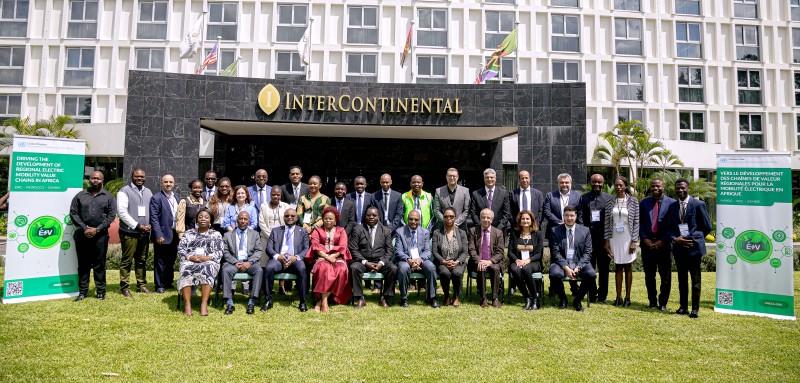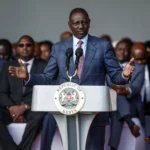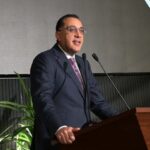Morocco, the Democratic Republic of Congo (DRC), and Zambia have launched the second phase of an electric mobility initiative in Lusaka, Zambia.
Organized by the UN Economic Commission for Africa (ECA), the workshop, taking place from December 9 to 11, focuses on building a regional value chain for electric vehicles (EVs).
With the booming global EV market projected to reach $46 trillion by 2050, this initiative aims to leverage Africa’s vast mineral resources and growing automotive expertise.
Africa holds 30% of the world’s cobalt, lithium, and copper reserves, crucial for EV battery production. This resource wealth, combined with Morocco’s advanced automotive sector and the DRC’s rich mineral base, provides an opportunity to create robust value chains in battery production, vehicle assembly, and charging infrastructure.
- Advertisement -
The project aligns with global and regional sustainability goals, including the UN’s 2030 Agenda and the African Union’s Agenda 2063. It aims to reduce reliance on fossil fuels, modernize Africa’s transport infrastructure, and foster economic growth through job creation.
Crusivia Hichikumba, Zambia’s Permanent Secretary for Investment and Industrialization, emphasized the importance of regional collaboration to transition economies toward a post-fossil fuel era and enhance green industrialization.
Idriss Addahbi of Morocco’s Ministry of Industry and Trade highlighted the potential to establish Africa as a world leader in electric mobility, emphasizing the benefits.
Despite the promise, challenges remain. Limited EV infrastructure, such as charging stations, and regulatory differences across countries hinder seamless integration. However, the African Continental Free Trade Area (AfCFTA) offers a platform for policy harmonization, which could accelerate the development of regional value chains and improve trade flows.
The Lusaka workshop includes public and private sector representatives and technical experts working to establish action plans. The discussions will culminate in a high-level policy dialogue on December 12, aimed at solidifying roadmaps and partnerships for Africa’s electric mobility future.










